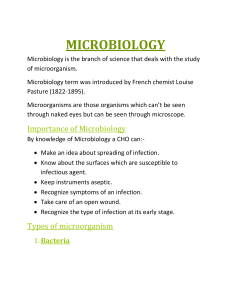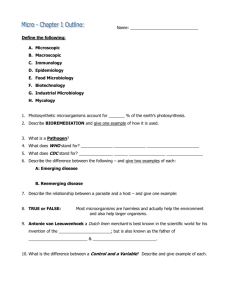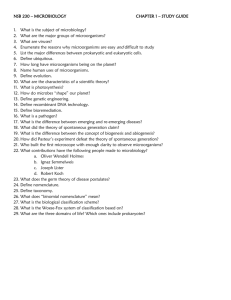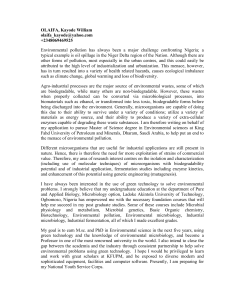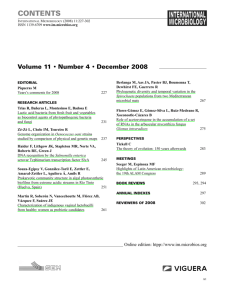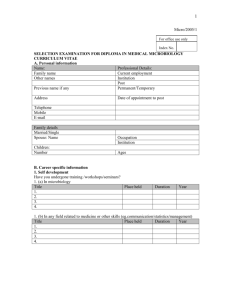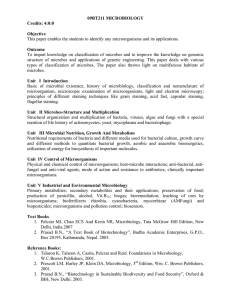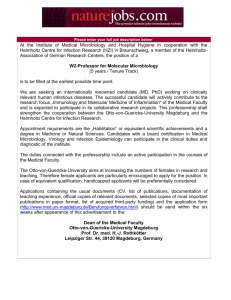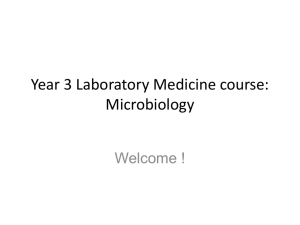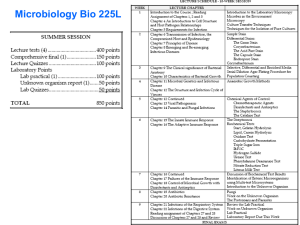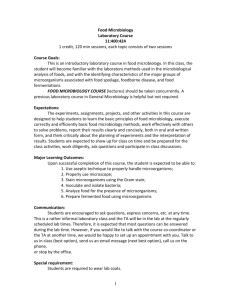Medical Microbiology Syllabus - Course Overview
advertisement
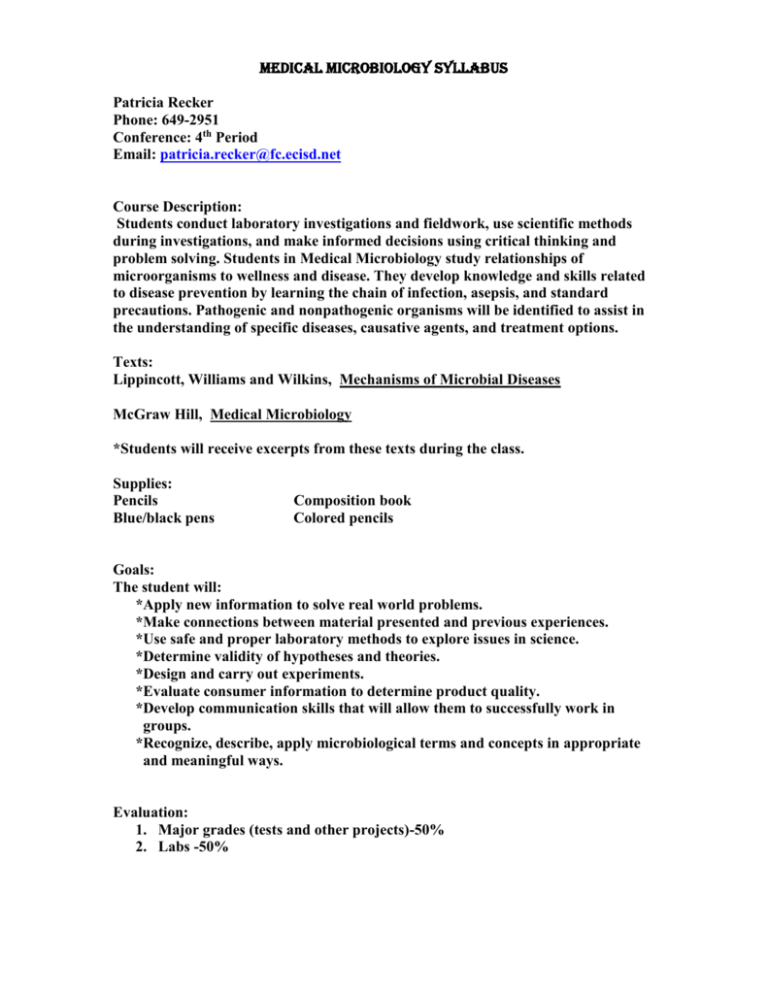
MEDICAL MICROBIOLOGY SYLLABUS Patricia Recker Phone: 649-2951 Conference: 4th Period Email: patricia.recker@fc.ecisd.net Course Description: Students conduct laboratory investigations and fieldwork, use scientific methods during investigations, and make informed decisions using critical thinking and problem solving. Students in Medical Microbiology study relationships of microorganisms to wellness and disease. They develop knowledge and skills related to disease prevention by learning the chain of infection, asepsis, and standard precautions. Pathogenic and nonpathogenic organisms will be identified to assist in the understanding of specific diseases, causative agents, and treatment options. Texts: Lippincott, Williams and Wilkins, Mechanisms of Microbial Diseases McGraw Hill, Medical Microbiology *Students will receive excerpts from these texts during the class. Supplies: Pencils Blue/black pens Composition book Colored pencils Goals: The student will: *Apply new information to solve real world problems. *Make connections between material presented and previous experiences. *Use safe and proper laboratory methods to explore issues in science. *Determine validity of hypotheses and theories. *Design and carry out experiments. *Evaluate consumer information to determine product quality. *Develop communication skills that will allow them to successfully work in groups. *Recognize, describe, apply microbiological terms and concepts in appropriate and meaningful ways. Evaluation: 1. Major grades (tests and other projects)-50% 2. Labs -50% Course Scope and Sequence: I. II. Introduction to Microbiology Laboratory Safety and Infection Control 1. Laboratory Safety 2. Standard Precautions for the Laboratory 3. The Microscope 4. Quality Control 5. Analysis of Current Infection Control Measures III. History of Medical Microbiology IV. The Immune Response 1. Immune Response 2. Immunity/Vaccinations V. Microorganisms 1. Introduction to Microorganisms 2. Virology 3. Mycology 4. Parasitology 5. Antimicrobials 6. Nosocomial Antibiotic Resistant Organisms 7. Food Borne Illnesses VI. Basic Concepts of Medical Microbiology 1. Critical Thinking Problems 2. The Growth of Microorganisms 3. Gram Stain 4. The Art of Streaking (for isolation) 5. Bacterial Growth Characteristics 6. Mystery Growth Laboratory Practical 7. Catalase and Oxidase Testing 8. Coagulase Testing 9. Urease Testing VII. Laboratory Investigations and Diagnosis of Patients 1. Water Purification 2. Capstone Laboratory Investigation VIII. Case Studies Tutorials: Monday-Friday 7:20-8:30 am/4:20-5:00 pm
